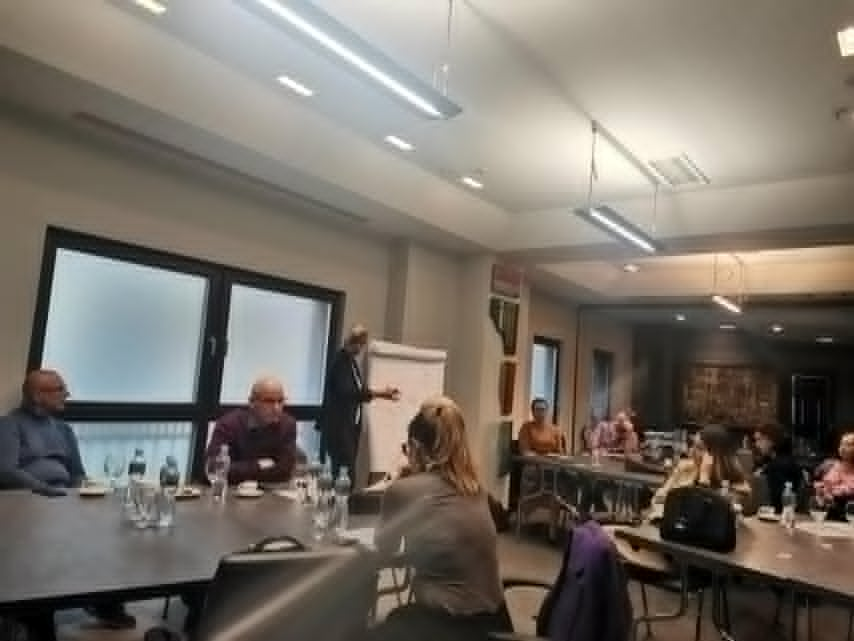TTZ-Textile cluster part of a workshop on "Sustainability and circular economy in practice" organized by SIIPPO (October 2023)

The textile cluster and several of its members were part of a three-day workshop on the topic "Sustainability and circular economy in practice" organized by SIPPO October 18-20, 2023. The workshop was designed to help business organizations and businesses operating in export to understand sustainability. and circularity in business practice.
The objective of this workshop was to build capacity and increase awareness of sustainability and provide guidance to companies in the textile sector to improve their export power by adopting sustainable business practices.
The workshop indicated important strategic directions for the textile industry in Macedonia. Textile exporters are shifting from traditional to circular models, emphasizing brand collaborations to achieve zero waste and transparency in the supply chain. The event's textile cluster highlighted the need for strong collaboration between manufacturers, technology providers, universities, service providers and banks. TTZ emphasized that these collaborations are essential for the successful implementation of circular strategies and for the development of innovative business models. Identified knowledge gaps were concentrated mostly on the interpretation of "Sustainability and Circularity" in "Recycling" and hardly considering other "R's" such as Replace, Reduce, Renew or Repurpose as important elements of good circular economy practices.
The objective of this workshop was to build capacity and increase awareness of sustainability and provide guidance to companies in the textile sector to improve their export power by adopting sustainable business practices.
Workshops introduced participants to a fundamental understanding of sustainable and circular practices, both in theory and practice. Key insights from the opening sessions revealed that many of the businesses - particularly in social sustainability - are already operating more sustainably than they first had the impression. However, further upgrading and modification in their work is forthcoming. New mandates in Corporate Social Responsibility (CSR) and the German Supply Chain Law pose significant challenges, especially for businesses in the textile sectors in Macedonia. It was emphasized that the role of the Textile Cluster in providing sustainability services driven by the demand of the members is great. With a hands-on approach, representatives of the Textile Cluster and several of the textile companies present explored practical strategies used in Europe, digital tools such as the value chain generator and the importance of these tools in identifying weaknesses, potential technologies to use and partnerships for building sustainable businesses and collaborations.
The workshop indicated important strategic directions for the textile industry in Macedonia. Textile exporters are shifting from traditional to circular models, emphasizing brand collaborations to achieve zero waste and transparency in the supply chain. The event's textile cluster highlighted the need for strong collaboration between manufacturers, technology providers, universities, service providers and banks. TTZ emphasized that these collaborations are essential for the successful implementation of circular strategies and for the development of innovative business models. Identified knowledge gaps were concentrated mostly on the interpretation of "Sustainability and Circularity" in "Recycling" and hardly considering other "R's" such as Replace, Reduce, Renew or Repurpose as important elements of good circular economy practices.
